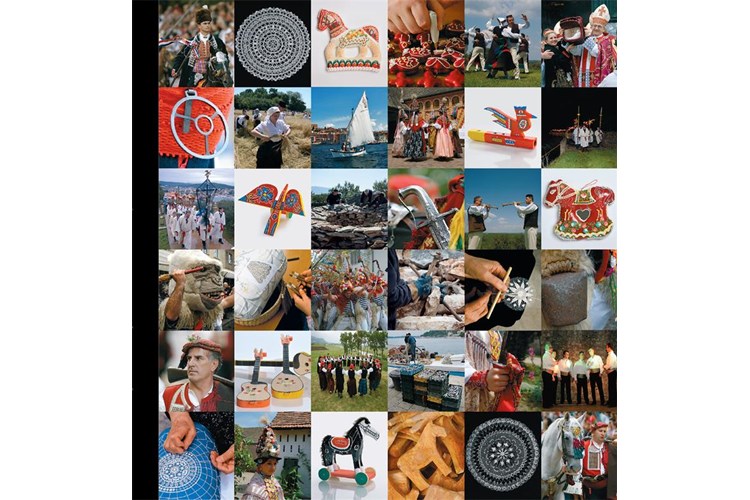
For a number of years now and especially since the ratification of the UNESCO Convention for the Safeguarding of the Intangible Cultural Heritage in 2005, the Republic of Croatia has been implementing intense activities of valorisation, keeping inventory, documentation and promotion of intangible cultural heritage. As the central implementation body of the 2003 Convention, until 2018 the Ministry of Culture of the Republic of Croatia has inscribed over 160 intangible cultural goods in the Cultural Property Register of the Republic of Croatia, out of which 17 have been inscribed on three UNESCO lists of the Intangible Cultural Heritage of Humanity: the Representative List of the Intangible Heritage of Humanity (15 goods), the List of Intangible Heritage in Need of Urgent Safeguarding (1 good) and the Register of the Intangible Heritage Best Safeguarding Practices (1 good). These impressive figures are a result of the successful cooperation of the Ministry of Culture, its professional services within the Directorate for the Protection of Cultural Heritage and the Service for UNESCO, with the Croatian Commission for UNESCO, the Commission for Intangible Heritage, experts from various scientific institutions and holders of these traditions.
In an effort to engage different sectors and all levels of the society as a whole in various activities of planning and implementation of the protection measures, the preservation of the intangible cultural heritage in Croatia is carried out systematically, with an active participation of local communities and relevant stakeholders. Every year, through public calls, the Ministry of Culture supports a number of activities ensuring long-term inclusion of intangible heritage in formal and non-formal education, development projects, an adequate supply of traditional products on the market, various research and documentation activity, sustainable development planning, development of creative approaches to heritage, etc.
International cooperation in the field of intangible heritage includes the exchange of experiences and knowledge with neighbouring countries and wider, thus, the Republic of Croatia has been active in the UNESCO’s Category 2 Regional Centre for the Safeguarding of Intangible Cultural Heritage in South-Eastern Europe in Sofia since its very establishment. By participating in international projects such as multinational nominations for the UNESCO lists and various projects supported by European funds, as well as by participating in seminars and conferences, in addition to exchanging of experiences, the work on the preservation of intangible heritage in general is being improved.
Some of the guidelines the Republic of Croatia is guided by in conducting activities of the intangible heritage preservation are long lasting results, quality planning, local heritage management, international, European and cross-border cooperation. Special attention is also given to the intangible heritage of minorities in Croatia, as well as to the fair representation of various vulnerable groups in the local community. As some of the objectives of the UNESCO 2003 Convention are to raise public awareness of the value and frailty of the intangible heritage, which is exposed to a number of different socio-historical influences leading to its disappearing, an exhibition such as this one, presenting the intangible cultural heritage of Croatia on the UNESCO lists, is a very valuable contribution to the preservation of intangible cultural heritage.
Minister of Culture Nina Obuljen Koržinek


